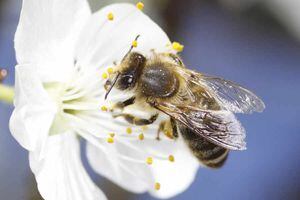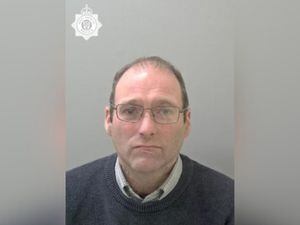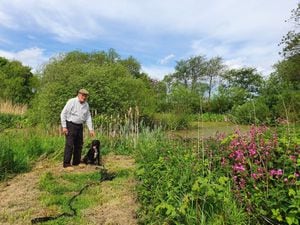Pesticide at centre of row 'not a threat to bees', claim farming chiefs
There is no evidence that a strong type of pesticide is causing a decline in bee populations, a Shropshire farming chief has claimed.

The Government has temporarily lifted a ban on neonicotinoid in certain parts of the country despite an EU-wide moratorium.
Studies have claimed the pesticide is harmful to bees, but NFU regional director for Shropshire Rob Newbery, said there is "no compelling evidence" that it is having an impact.
He said: "Damage caused to crops by cabbage stem flea beetle is a widespread problem on a national scale and neonicotinoid seed treatments are vital to provide protection from these pests.
"There is still no compelling evidence that under field conditions, the approved use of neonicotinoids is causing a widespread decline in bee populations.
"Pollinators are vital for farming and there are many excellent environmental schemes in place on farms across Shropshire to help promote habitat and species.
"There are frustrations for growers who have been denied access to neonicotinoid seed dressings this year."
He added: "If we are to lobby in the future for a return to the situation where all growers can benefit from this technology then getting a few thousand acres of oilseed rape sown with neonicotinoid seed dressings will help demonstrate the importance of this crop protection product for all."
Last week it was revealed that two species of bumblebee have become extinct in Shropshire over the past 60 years – with an expert warning two more are under threat.
Bee enthusiast Bryan Swain, 70, from St Martins, near Oswestry, said he believes people should not use pesticides in gardens and instead let nature take its course.
"People are too impatient and rush to use Provado, a bug killer, on their plants because they fear greenfly will attack," he said. "But they shouldn't. They should let the sparrows have the greenfly and then nature will work itself out."
It comes as an online poll has been launched by the Royal Society of Biology to find the UK's favourite insect. Experts have come up with a list of 10. Candidates for the accolade include the seven-spot ladybird, the buff-tailed bumblebee, the stag beetle and the emperor dragonfly.
The poll is part of a campaign that is being run by the society to publicise the plight of British invertebrates which are now suffering from the impact of environmental impacts including loss of habitat, overuse of pesticides and climate change.
You can vote at www.rsb.org.uk





